Instructions for Filling Out the TZ2 Form for the 2022 Period
January 12, 2022 - The TZ2 form refers to the period 01/01/2022 to 12/31/2022 and must be submitted by Saturday, January 15th. Here are some important considerations for filling it out.
Persons who provide catering services in the household or on the family farm must submit to the competent Tax Administration a special TZ2 form by January 15 of the current year for 2022, according to the data on the number of beds from the previous 2021, reports HrTurizam.hr.
According to the instructions for filling in published by the Ministry of Tourism and Sports (MINTS), it should be noted that in point 17 of the TZ2 form, the total amount of receipts from the traffic records from 2021 is entered.
The annual lump sum membership fee can be paid once until July 31 of the current year or in three equal installments, with the first installment due on July 31, the second on August 31, and the third on September 30 of the current year.
Exceptionally, persons who will obtain a decision on approval for the provision of catering services in households or family farms for the first time in the current year (2022) shall submit the TZ2 form within 15 days of the enforcement decision on approval for providing catering services, and the lump sum membership fee is paid once until December 31 of the current year.
The number of beds, the number of accommodation units, and the capacity for accommodation facilities for persons providing catering services in the household or on the family farm are calculated according to data from the eVisitor system and determine the payment of the tourist membership fee for 2022.
Renters who are non-residents must submit the TZ2 form to the Tax Administration, Branch Office for non-residents, Avenija Dubrovnik 32, 10000 Zagreb. Please note that landlords who have obtained a decision to deregister the provision of catering services in the household by 31 December 2021 are not required to submit the TZ2 form.
Taxpayers referred to in Article 10 of the Tourist Membership Membership Act shall continue to submit the TZ1 form by the end of February or April.
The TZ2 form that has to be submitted by 15 January 2022 refers to the period from 01/01/2022 to 31/12/2022. For any additional questions, please contact your tourist board.
For more, check out our dedicated business section.
Sveta Nedelja Helps Caterers and Gym Owners with 1,500 Kuna
February 22, 2021 – As one of the five best cities in Croatia regarding the living standard, Sveta Nedelja helps caterers and gym owners with one-time assistance of 1,500 kuna.
Although gyms and sports centers opened their doors on February 15 after two and a half months due to epidemiological measures, both gym owners and caterers struggle to cope with the revenue loss. And while the Government aid of 4,000 kuna for all catering and sports workers is still coming, many find this amount insufficient to live normally. It is still not known when and whether the catering facilities in Croatia will be opened.
However, some encouraging news comes for Sveta Nedelja's owners of catering facilities and gyms. Namely, the mayor of Sveta Nedelja, Dario Zurovec, announced on his Facebook profile that all owners of catering facilities and gyms in the city area would receive one-time assistance of 1,500 kuna.
"One-time assistance of the Sveta Nedelja City to cafes, restaurants, gyms, and fitness centers in the amount of 1,500 kuna will at least somewhat alleviate the difficult situation in which our fellow citizens find themselves, whose right to work is limited due to epidemiological measures. Vision, ambition, development, and responsible management have resulted in our city setting standards for the whole of Croatia in recent years. I want us to continue to be that – an example for others city," wrote Mayor Dario Zurović on his Facebook page.
Lately, only positive connotations have been associated with the city of Sveta Nedelja. With their investment in the city development, Sveta Nedelja has been named the best medium-sized town in Croatia for the economy for the last few years. Also, they have been at the very top of the best cities in Croatia for quality of life for several years. Now Sveta Nedelja helps caterers and gym owners with the desire to be a positive example to other Croatian cities as well.
Details of the public call for funds allocated from the city budget have been published on the official website of Sveta Nedelja. All Sveta Nedelja's residents whose work has been suspended by decisions of the Headquarters must fill the form and attach the necessary documentation to receive funds. The application for assistance is open until March 31, 2021.
For the latest news from Dario Zurovec and Sveta Nedelja, follow the dedicated TCN section.
Croatian Smart Table 'TabORDER' Makes Life Easier for Caterers and Guests
February 16, 2021 – As one of the most popular activities in Croatia is having coffee at a bar, and while the coronavirus pandemic disables regular work for caterers, imagine how it would be easier for both caterers and guests if the waiter would bring the order over after one tap on the screen. With the innovative Croatian smart table, it seems like this scenario will soon be possible.
TabORDER, a Croatian smart table, offers contactless ordering and payment in catering facilities. It has a wooden surface with a built-in computer, electronics, a touch screen, and thick glass to protect against damages and spills.
The software part has an ordering application that includes the complete offer of an individual catering facility. It enables quick ordering without a waiter, sending the order directly to the cashier. It is also possible to pay via the table, which is another benefit in preventing the spread of coronavirus infection by reducing unnecessary social contact.
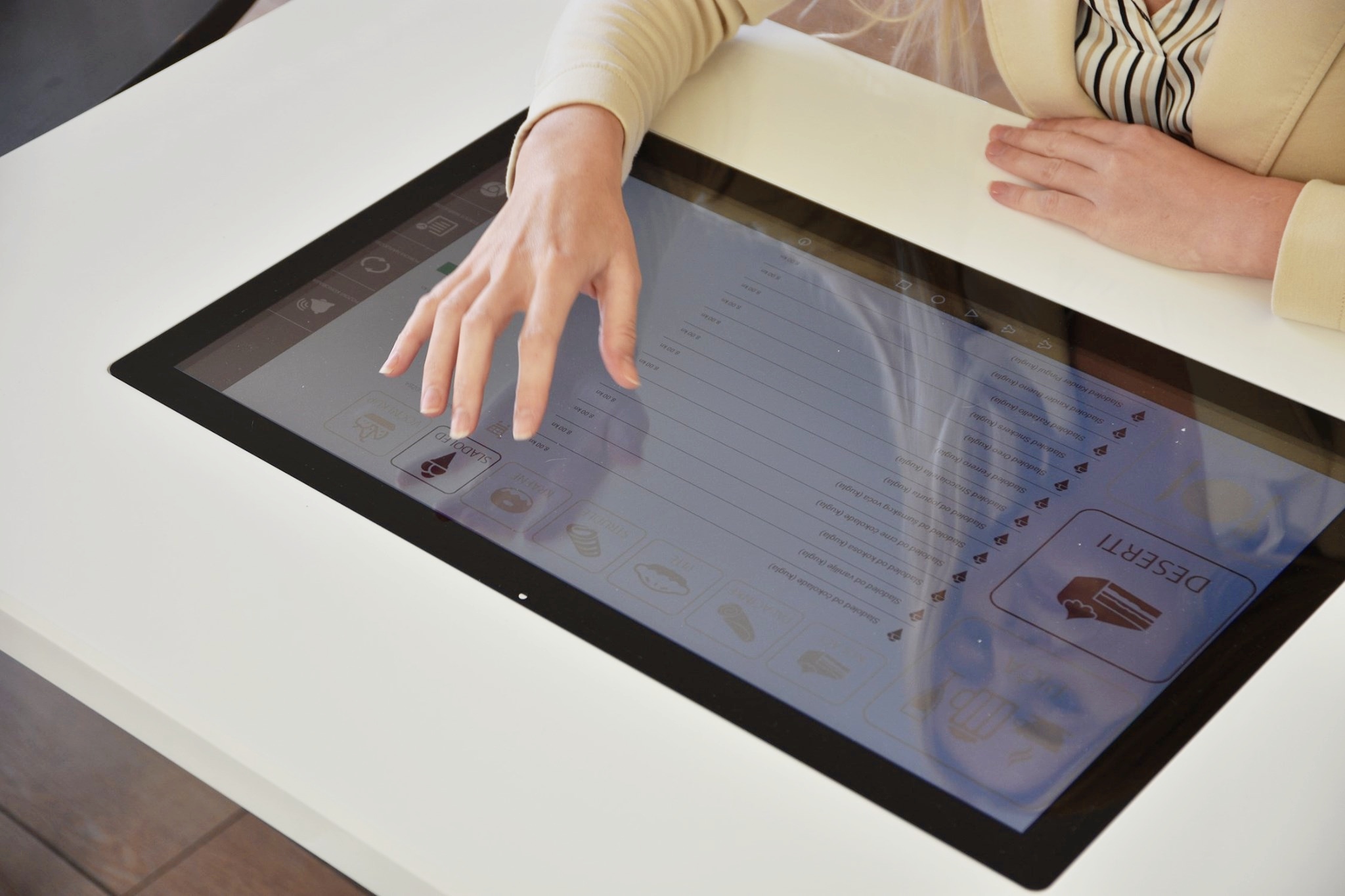
TabORDER / info-MINOVA
The ordering table can also serve as an interactive desk for using the Internet. It also has advertising space that can be an additional source of income for owners/caterers. To adapt to all caterers' requirements, mobile or tablet applications are also offered as a cheaper option of the contactless ordering system.
Young people and children loved Croatian smart table
Different screen, table, and stand sizes are available where design, material, top panel thickness, and stand can be picked.
The idea came from Mihaela Popović, the owner of the company info-MINOVA, the manufacturer of TabORDER. Like most people, Mihaela once waited for an order in a cafe when she got the thought of a smart table that would speed things up. How is it even possible that at the time of the greatest digitalization, something like this had not already been planned, Mihaela wondered.
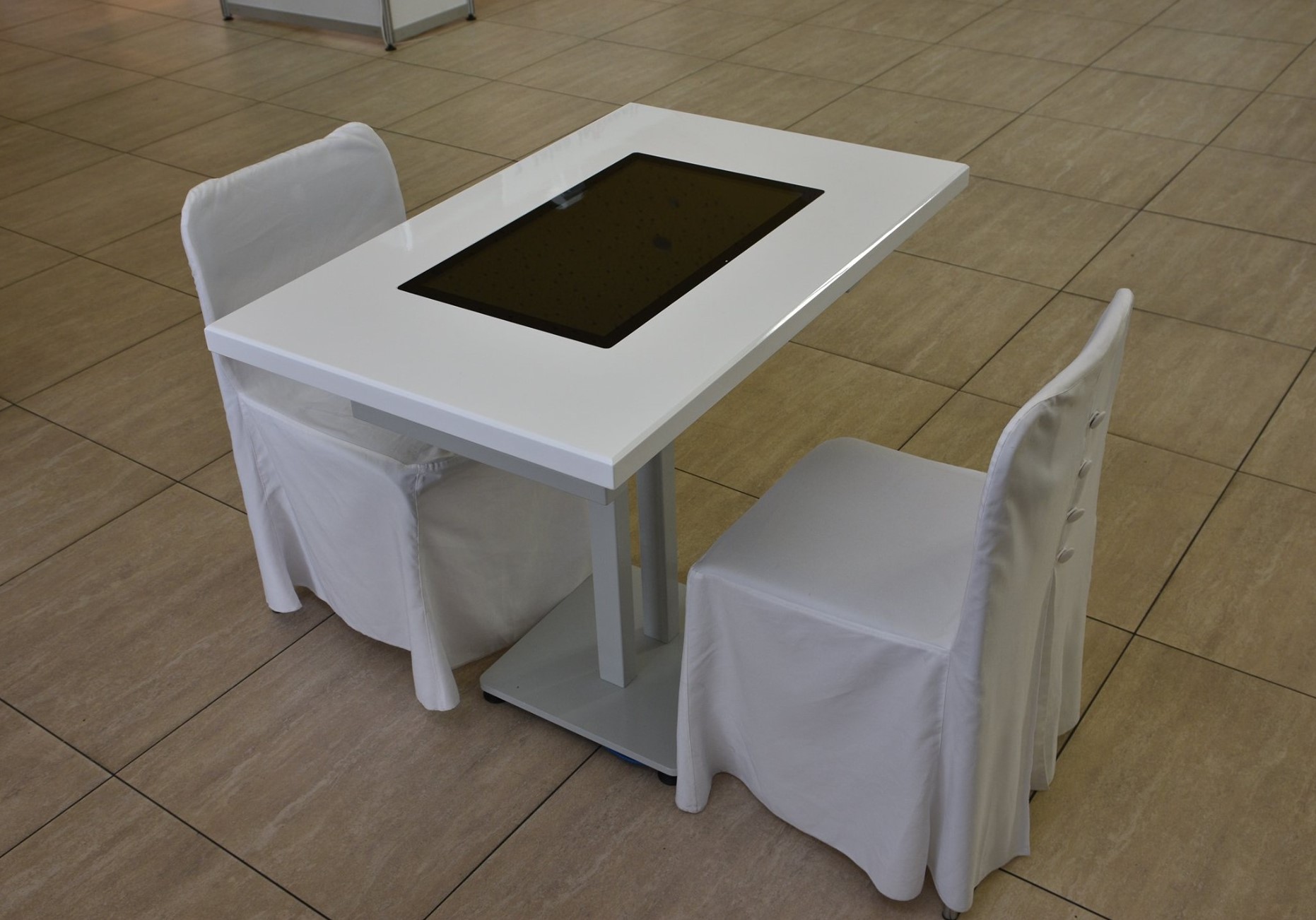
TabORDER / info-MINOVA
"I reviewed existing similar solutions for applications, panels, and smart tables, but I didn't like them. At that time, an entrepreneurship competition had just come out where innovative ideas scored the most, so I wrote the first business plan for a smart table and suggested it to my brother. He is an expert in hardware and software solutions. We did not win the competition, but we decided to start the development ourselves. The prototype was made and exhibited for the first time at INOVA 2018 in Zagreb, where it received a lot of attention and interest from visitors, especially young people and children," explains Mihaela.
Croatian smart table soon in Zagreb and abroad?
This smart table has also been recognized at numerous innovation fairs. So far, TabORDER has won three awards: at the 7th Innovation Fair in Bjelovar in 2019, the innovation award at INOVA 2019 in Zagreb, and even the award at the ITE Expo Innovation Fair in London in 2019.
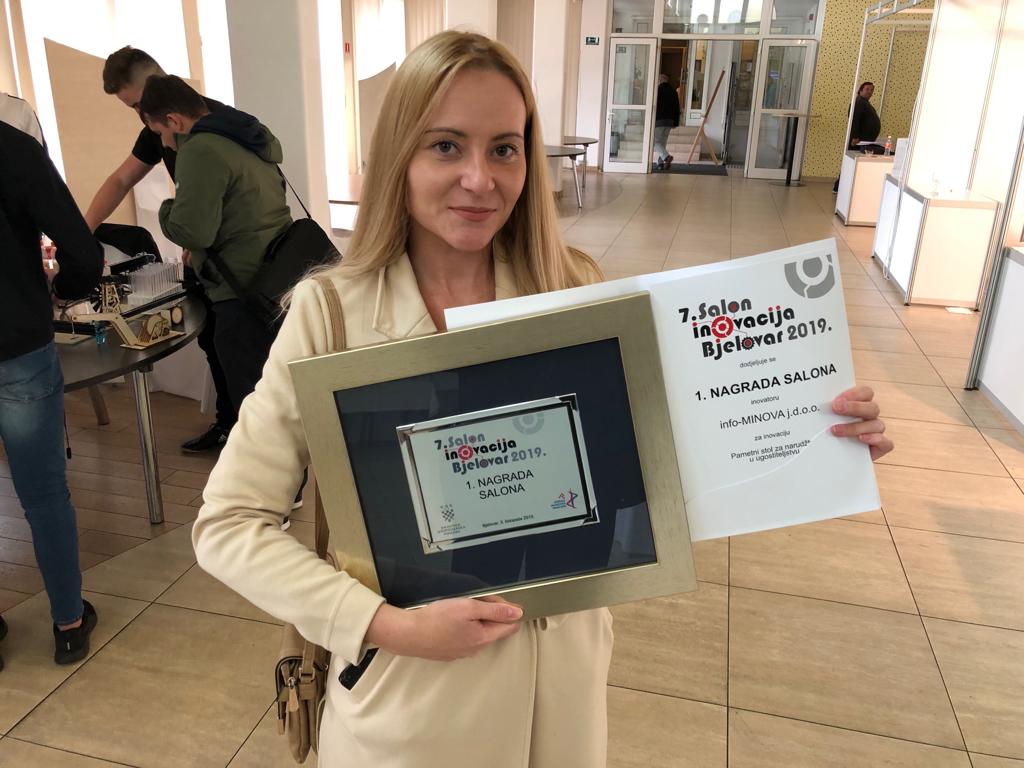
Mihaela Popović, owner of the info-MINOVA company and conceptual initial of the Croatian smart table TabORDER / info-MINOVA
Will we soon really be able to order food and drink via TabORDER? As Mihaela says, that will be possible soon in Zagreb and maybe even abroad. So far, they have focused on functionality and product testing, but the commercialization has begun in the last month.
"We have recently been realizing a facility that would have a complete system of our smart tables that offer digital ordering and advertising, and the facility should be opened in Zagreb soon. We also have several inquiries abroad, so we are arranging offers for them," says Mihaela.
Info-MINOVA was established in August 2018 as a continuation of the family business and brings together a team of design, electronics, hardware, and software experts. Their main activity is design, but they also create websites, applications, and sport scoreboards.
Solving tourism problems with Croatian smart table
Besides caterers, TabORDER could also be helpful to tourism workers, especially in hotels, as it reduces unnecessary social contact, which is currently extremely important for tourists when choosing a destination during a coronavirus pandemic. With the digitization of all systems, it enables better control and organization of the business. Mihaela emphasizes that they can offer similar solutions to all other tourism sectors and redesign the systems to their needs.
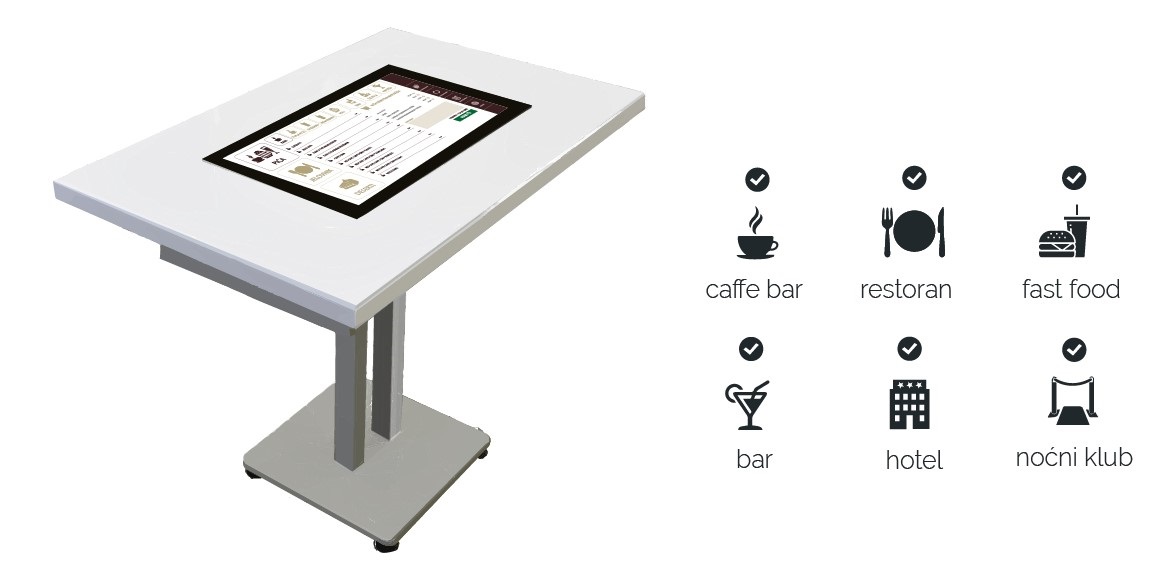
TabORDER / info-MINOVA
Although TabORDER seems like an excellent solution for catering facilities and tourism, caterers' first reactions were not good. Several caterers were skeptical. Given that the first TabORDER prototype was created before the coronavirus pandemic, it was considered a significant investment, and that it was not yet time for it.
TabORDER was not supported because some were not satisfied with the existing applications they used, which also created further mistrust. As an innovator and entrepreneur, Mihaela feels responsible but also insecure in these uncertain times. However, she is sure that TabORDER responds to all current challenges.
"For the last year, we have been witnessing the consequences of the coronavirus crisis that were left on all branches of the economy, especially on the catering sector. I believe that it is now necessary to make digitalization and that TabORDER offers complete digitalization while adapting to caterers' needs and capabilities," says Mihaela.
To read more about innovations from Croatia, follow TCN's dedicated page.
Restaurant and Cafe Owners Stage Protest Rally in Front of Finance Ministry
ZAGREB, November 30, 2020 - Dozens of restaurant and cafe owners whose businesses had to close last weekend due to new epidemiological restrictions expressed their dissatisfaction on Monday by staging a peaceful protest rally and lighting lanterns outside the Ministry of Finance.
The protest rally started before noon at Zagreb's main Trg Bana Jelacica square and ended at about 1 p.m., and the protesters estimate that there were several dozens of them.
From the main square, the protesters walked to Katanciceva Street, where the Finance Ministry's building is located, and they lit lanterns in front of the building.
The rally was not organised by any association, the protesters said, adding that it was a spontaneous gathering to protest against closing hospitality and other establishments, such as gyms, and to protest because tighter restrictions were introduced last weekend and operating was made difficult, which puts the survival of businesses, employees and owners themselves at risk.
Drazen Orescanin, representative of the Voice of Entrepreneurs association, said that the gathering was spontaneous and that they were waiting for the results of the meeting between hospitality stakeholders and entrepreneurs with ministers at the Ministry of Labour and Pension System, but what the government was offering was not in line with their requests, according to what he had heard.
"We will keep asking for the compensation to be fair and in accordance with other EU countries, so that everyone who had a significant drop in business is eligible. We also continue our fight for the survival of the economy, for which it is necessary to reduce the VAT rate and for government to make substantial reforms," Orescanin said.
In addition to owners of restaurants and cafe bars, owners of gyms, fitness clubs and others whose businesses cannot operate now also took part in the protest rally, warning that they can no longer survive in the new circumstances.
More Than 500 Catering Facilities in Croatia Granted Certificate for Safe Coffee Preparation
October 22, 2020 – Today, feeling safe is one of the main requirements of guests in catering facilities, and for caterers to make it possible, some in Croatia already have a certificate for safe coffee preparation.
Food and beverage safety in catering facilities has never been more important. In the age of the coronavirus pandemic, many caterers are turning to innovative solutions to provide their guests with safety while consuming food and drink.
As Večernji.hr reports, more than 500 catering facilities in all parts of Croatia have a certificate of safe coffee preparation called "Safer coffee". It is a certificate that guarantees the highest level of safety and hygiene in coffee preparation, and caterers can get it by taking the online training "Safer Coffee Preparation Training".
This innovative concept was launched by the Austrian family company Julius Meinl, known for its sustainable and socially responsible business on a global scale. The project is available in more than 20 countries where Julius Meinl owns its companies, including Austria, Croatia, Italy, Germany, but also the USA and China.
"Based on the recommendations of the World Health Organization and in cooperation with AISC – Austrian Society for Infection Control, a protocol has been created that is applied in cafes, hotels, and restaurants around the world, focusing on all phases of coffee preparation and service. The protocol provides the highest quality with an additional level of security," explains Marko Crnogorac, global sales director and head of International Key Accounts of the Julius Meinl company.
Coffee experts educate the staff of bars, restaurants, and hotels through video tutorials. Training participants acquire the knowledge and skills of small precautions that include the safety distance between customers, setting up containers for sugar or tea bags in a way to avoid handling customers, using a mask and hand sanitizer before each beverage preparation, and many other steps. After taking the online exam and obtaining the certificate, the teams will check every month whether the owners of the "Safer Coffee" certificate adhere to all the conditions for the safe preparation of coffee.
And how do you know if your favorite coffee shop has this certificate? Certified catering facilities can be identified by the prominent quality label for safer coffee preparation at the front door or the entrance.
The great interest in obtaining this certificate at more than 500 catering facilities in Croatia proves that for caterers, it is important to provide guests with a sense of security and that they strive to adapt to new requirements of guests.
For the latest travel info, bookmark our main travel info article, which is updated daily.
Read the Croatian Travel Update in your language - now available in 24 languages.
Caterers in Dalmatia Announced Big Protest, Closing Their Facilities for an Hour
September 18, 2020 – Caterers in Dalmatia, namely in Split-Dalmatia County, have announced a big protest to warn of the problems they are facing during the pandemic, reports Index.hr. Next Thursday, they will close their catering facilities for an hour.
“In hope of your understanding, we would like to inform you that we will close our catering facilities as a sign of a quiet protest due to the extremely bad economic situation. Therefore, on September 24, 2020, from 11:56 am to 12:56 pm we will be with you, but we won’t be serving you,” reads the announcement.
“Namely, the global coronavirus pandemic has caused a collective global lockdown, which has resulted in the largest recorded decline in economic activities in human history. Croatia, as an integral part of the globe, has not remained immune to this global phenomenon. Economic activity in the Republic of Croatia was lower even than during the Homeland War.
Thanks to the ruling party’s hearing, the immediate collapse of the Croatian economy and the dismissals of almost 700,000 people were prevented. The adopted measures saved numerous workplaces from the beginning of the tourist season, which bought a little time, but there is no real solution,” they write.
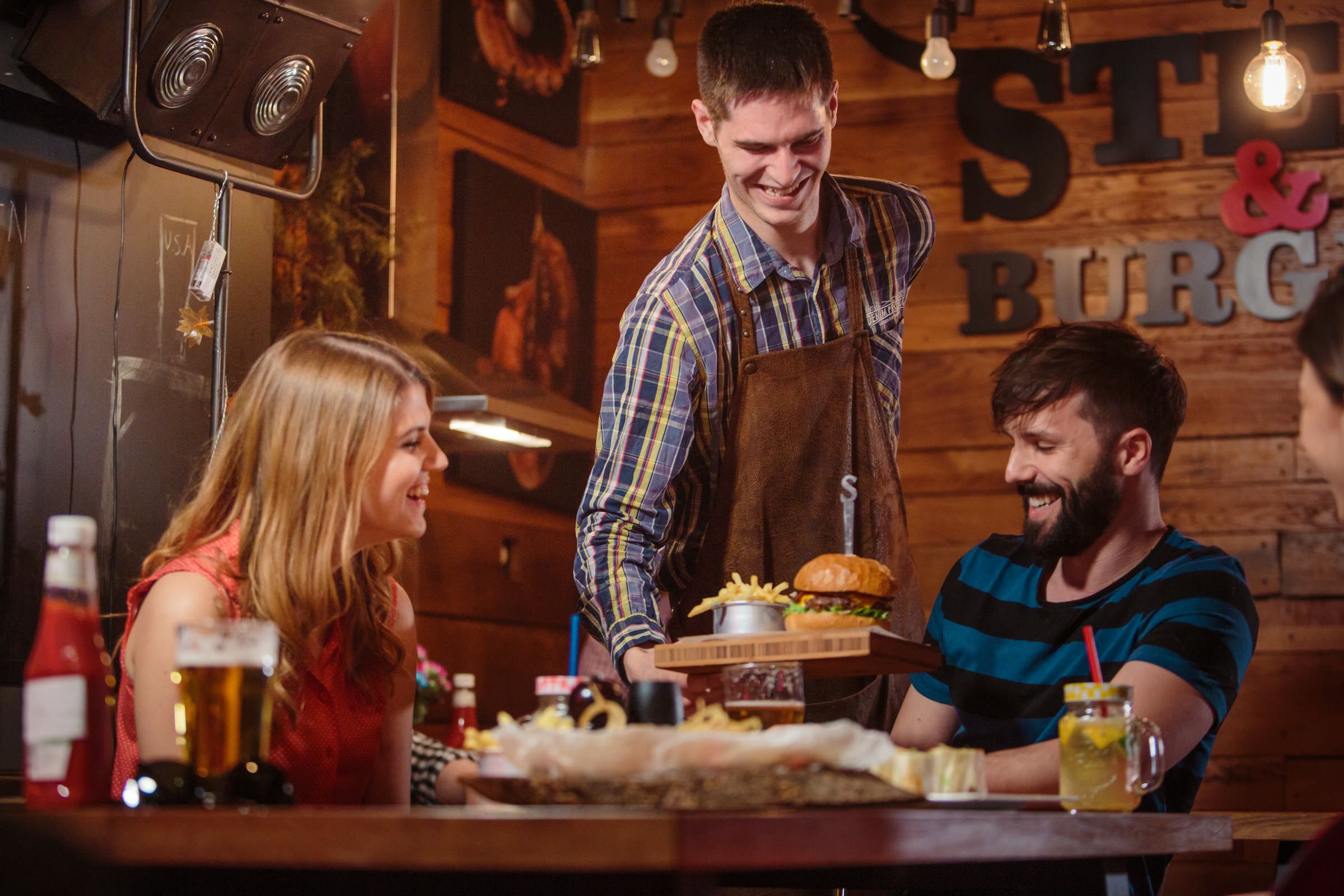
Copyright Romulić and Stojčić
Many on the verge of collapse
The measures have not helped some activities which are now on the verge of collapse.
"Measures to preserve jobs saved our employees from going to the Bureau. However, they did not save businessmen, and among them those who endured the hardest blow of all - occasional passenger transport, event industry, beauty industry, tourist guides, agencies, and caterers.
To maintain the level of catering offer that our guests are used to by coming to us, we have exhausted our resources. The announced favorable loans that the state was supposed to provide to businessmen left unspoken. Access to any credit line is blocked and inevitably leads to the collapse of the sector of which we are factors. We are working today to save income for 60,000 people tomorrow,” they say.
Requests published
According to their survey, out of 500 caterers, 60 percent of them said they recorded a drop bigger than 50 percent. As many as 40 of caterers, as they say in a statement, will not survive until the next season.
“As many as 80 percent of employers will be forced to resort to terminating employees' contracts. These figures will certainly not change for the better in the period ahead.
To save jobs, we require:
- suspension of VAT collection until January 3, 2021
- reduction of VAT on food to 10 percent *
- liquidity loans (HAMAG)
- aid through investment loans (HBOR)
* lowering VAT on all food, including coffee, hot drinks, beer, wine, and juices," they write.
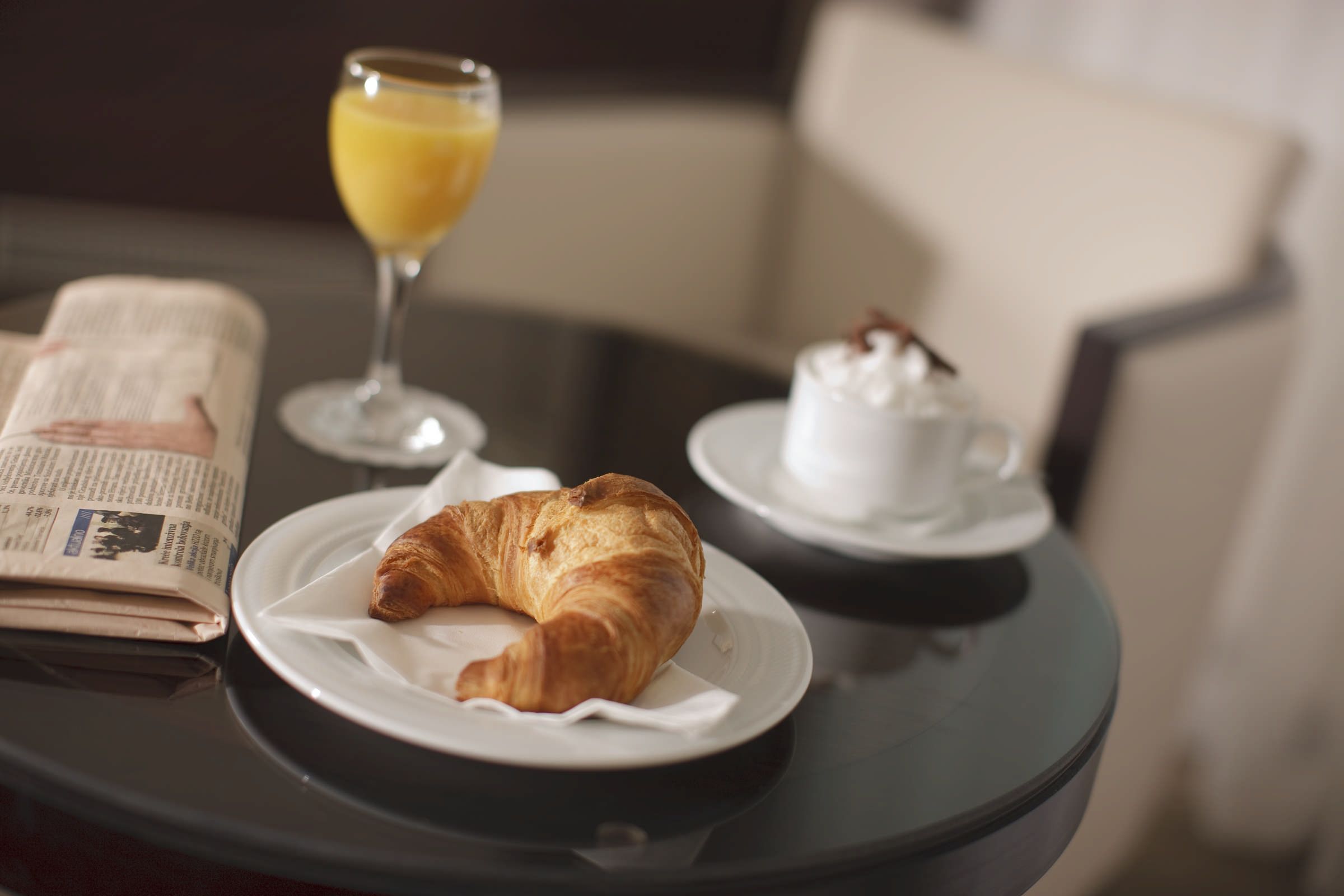
Copyright Romulić and Stojčić
“Aware of the seriousness of the situation that inevitably awaits us, Dalmatian caterers have launched an action “4 to 12”, following colleagues from Istria and Kvarner and their “5 to 12”, with which we symbolically plan to indicate that the last moments for long-term and concrete changes in the economy are expiring.
It is our responsibility to tell the responsible institutions of this country that without their new steps to save the business, no one will be able to save jobs. In doing so, we are not asking for free money, but access to credit lines to preserve liquidity, investments, and permanently real taxes, to consolidate our businesses and keep our most important resource that is – people!
Please understand once again and thank you in advance. If we do not act today, these dear people who serve you risk a better fate in other parts of the world. We don’t want to allow that happen,” they say.
For the latest travel info, bookmark our main travel info article, which is updated daily.
Read the Croatian Travel Update in your language - now available in 24 languages!
How Will Cafes and Restaurants in Croatia Work from May 11? The Details
e May 8, 2020 - The Croatian Institute of Public Health published detailed recommendations for catering facilities in Croatia on Thursday morning as cafes and restaurants can re-open from Monday, May 11.
Index.hr reports that to prevent the spread of infection while visiting catering facilities with and without terraces, and catering facilities in accommodation facilities, it is necessary to ensure a physical distance between visitors and between visitors and employees.
Working hours from 6 am to 11 pm, and work will be allowed inside, as well
Organization of work: Working hours of catering facilities are possible from 6 hours to 23 hours. In the facilities, tables are kept empty until guests arrive, and utensils are served when guests sit down. Menus should be displayed at the entrance or another visible place, and in plastic, that is, classic forms of the menu should be removed. Visitors can be given a verbal recommendation, or something similar, to express the food and drinks offer.
Limit the total number of visitors: The limit on the number of visitors can be achieved by setting the tables 1.5 m apart. The entry of guests is regulated in such a way that the next visitor or group of visitors can enter only when the previous group of visitors leaves. The physical distance between individual groups of visitors must be at least 1.5 m. Tables should be arranged to maintain a physical distance of 1.5 m between the tables, or between different groups of guests. Organized groups of guests can sit at tables, and the distance between individual groups of guests in the facility must be at least 1.5 m. For example, members of one family sit 1.5 m away from another group of guests, even if it is a long table that is intended for seating multiple people.
Serving food and drink: Visitors can also order a meal or drink in the restaurant, which they will take with them and consume on the terrace or outdoors. When ordering, a physical distance of at least 1.5 m between customers waiting in line must be observed. It is possible to order and pick up food or drink at the bar without delay, i.e., you cannot stay at the bar. Also, it is possible to serve standing guests if they keep a physical distance, without high tables, with consumption by hand.
Employee that serves guests on the outside of the facility: One employee is appointed who serves a pre-determined number of tables to minimize the mixing of employees and guests. Between charging for the service and serving individual visitors, the employee must disinfect their hands.
Hotel policies
Special rules for catering facilities in accommodation facilities and others that serve buffet-style: In these facilities, it is recommended that visitors maintain a physical distance of 1.5 m during their stay, and especially when serving meals in a buffet manner, unless they are members of the same family when members of the same family don't need to maintain a distance during their stay in the restaurant. It is recommended that the buffet mode of serving be carried out so that there is a partition between the guests and the food and that one employee serves the guest's food according to their choice. Other measures of physical distance related to family or other groups of visitors who use the services in the group are the same as for all other catering facilities.
Health protection of visitors and staff; Refers to sales and staff service: Everyone should always have a disinfectant available to disinfect their hands periodically. If possible, it is recommended to provide a space of at least 1.5 m between the server or cashier and the customer when issuing goods and paying for goods, or if possible, install a protective barrier at the place of service and at the cash register, which will physically separate the cashier from the customer. Contactless payment by bank cards should be encouraged.
No handing out newspapers or serving snacks at the tables
Caterers should adhere to the highest hygiene standards and wash their hands with warm water and soap as often as possible with the use of hand sanitizer, certainly before serving guests to each new table. Adapted to the epidemiological situation, it is currently recommended that air conditioners be out of use and that the space be ventilated.
After the departure of each group of guests, the table, chairs, and other surfaces that the guests touched must be wiped with disinfectant, i.e., the tablecloths must be removed even if they are not visibly soiled.
It is forbidden to serve snacks in bowls, and salt/pepper, oil/vinegar, and other spices cannot be left on the tables, but new, previously washed or disinfected dishes are brought for each group of new guests.
The use of shared newspapers, magazines and other printed matter in catering establishments is prohibited.
Cleaning and disinfection of the space: At the entrance to the facility, visitors should be provided with a hand sanitizer dispenser and a clearly displayed notice that it is mandatory to disinfect hands when entering. Also, the entrance should clearly display a notice that it is mandatory to maintain a distance of at least 1.5 m between visitors and between visitors and staff. Door handles and handrails, handrail surfaces, and door edges on refrigerators, as well as other surfaces that are noticed to be frequently touched by customers, should be continuously wiped with alcohol-based disinfectant or other means according to the manufacturer's instructions.
Indoor areas where guests are staying should be regularly ventilated.
To read more about business in Croatia, follow TCN's dedicated page.


